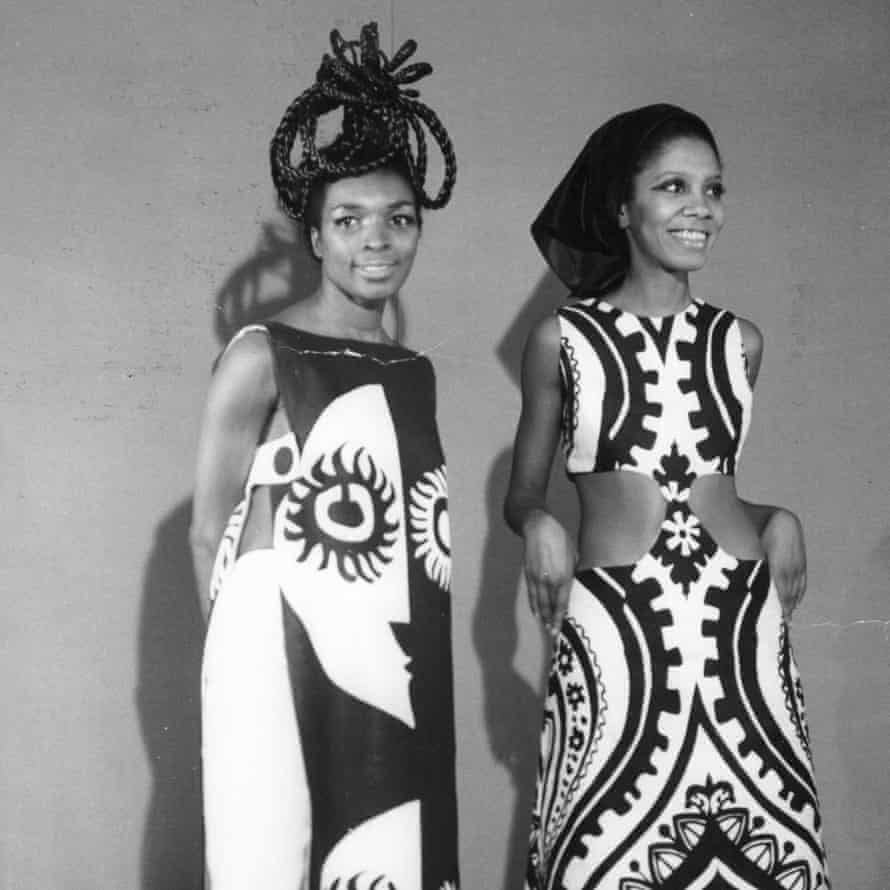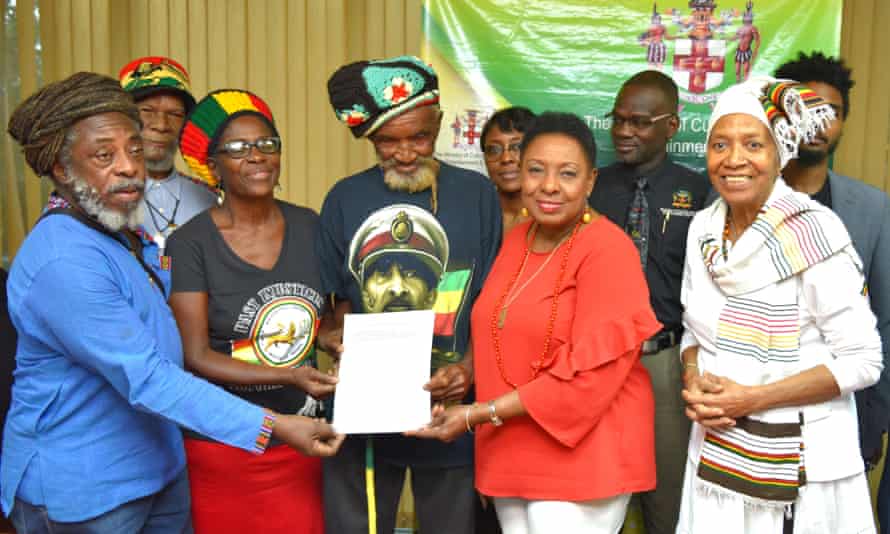Barbara Blake-Hannah: how Britain’s first black female TV reporter was forced off our screens
Barbara Blake-Hannah: how Britain’s first black female TV reporter was forced off our screens
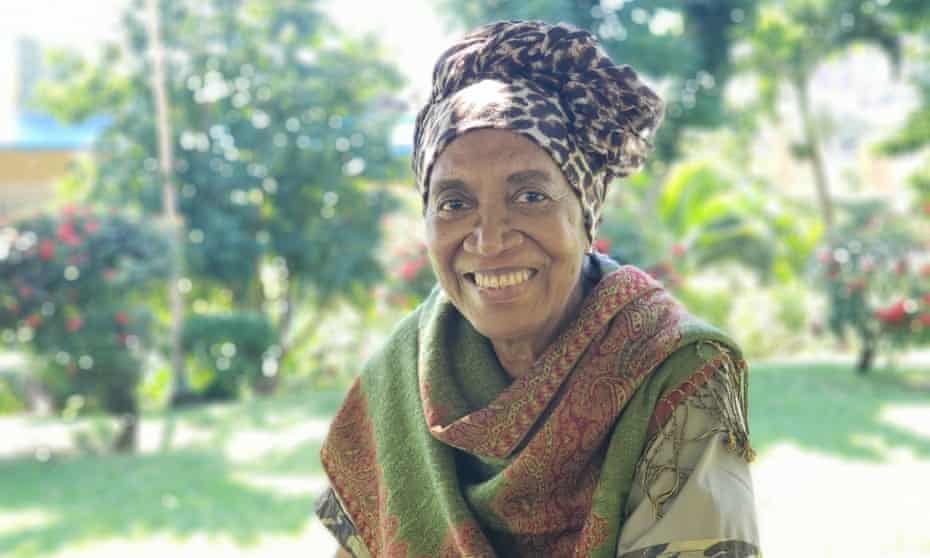
‘British people have never been taught the full story of their history’ ... Barbara Blake-Hannah. Photograph: Makonnen Hannah
In the 60s, long before Trevor McDonald and Moira Stuart became household names, a 26-year-old from Jamaica was a regular on the news. Then the racist letters and calls started
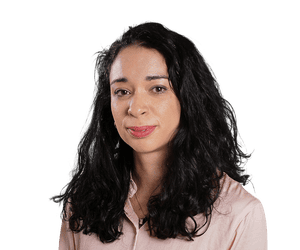
772
In 2008, Barbara Blake-Hannah sat down to write a letter of admonishment to the Guardian. “I must put history right,” she wrote, explaining that a poster issued by the paper was incorrect. It contained, she noted, the common misconception that Trevor McDonald was the first Black person to report the news on British TV after he joined ITN in 1973 and that Moira Stuart, on BBC News from 1981, was the first Black woman. In fact, said Blake-Hannah – an author, film-maker and former Jamaican senator – in 1968 she was one of three Thames Television on-camera reporters for the current affairs programme Today, presented by Eamonn Andrews. (The BBC had hired a Black trainee reporter, Eric Anthony Abrahams, a few years earlier.)
At the time her appointment made every daily newspaper, bar the Daily Express. Blake-Hannah claims the Express held out only because “they had a rule: no Black people on the front page”. “Shirley Bassey sang regularly and there were comedians, but we were allowed in an entertainment capacity, not as serious news people, delivering serious stories.”
She reported five days a week, on everything from the closing-down sale of the Beatles’ Baker Street shop (“They gave away everything in the store, so you can imagine the riot”) to gang crime in the East End of London. But, after nine months, the producers told her abruptly that they would not be renewing her contract. Why? Because of the numerous calls and letters from viewers objecting to a Black person on TV. “It broke my heart,’” she says.
Blake-Hannah is speaking to me from her home in Kingston, Jamaica, where she settled in 1972. She embraced Rastafari; the straightened, Vidal Sassoon-style bob of her 60s TV appearances has long been replaced by a leopard-print headwrap. Her only child, Makonnen Hannah, is nearby – he made headlines globally in 1998 when, as a 13-year-old, he was appointed the youngest-ever adviser to Jamaica’s Ministry of Commerce and Technology.
Blake-Hannah was raised in an affluent part of the Jamaican capital by her father, Evon Blake, a prominent magazine editor. His work meant mixing with the great and the good, but she says he is best remembered as the man who desegregated the swimming pool of the affluent Myrtle Bank hotel, a favourite haunt of one of his employees. “This accountant would go and swim there every midday, but my father, his boss, couldn’t. So one day my father put on his swimsuit and dived in. The horror! The manager came and said: ‘Mr Blake, you have to get out of the pool.’ He said: ‘No. Call the manager, call the prime minister, call God!’ And that was it: he liberated that pool, and he liberated Jamaican tourism.”
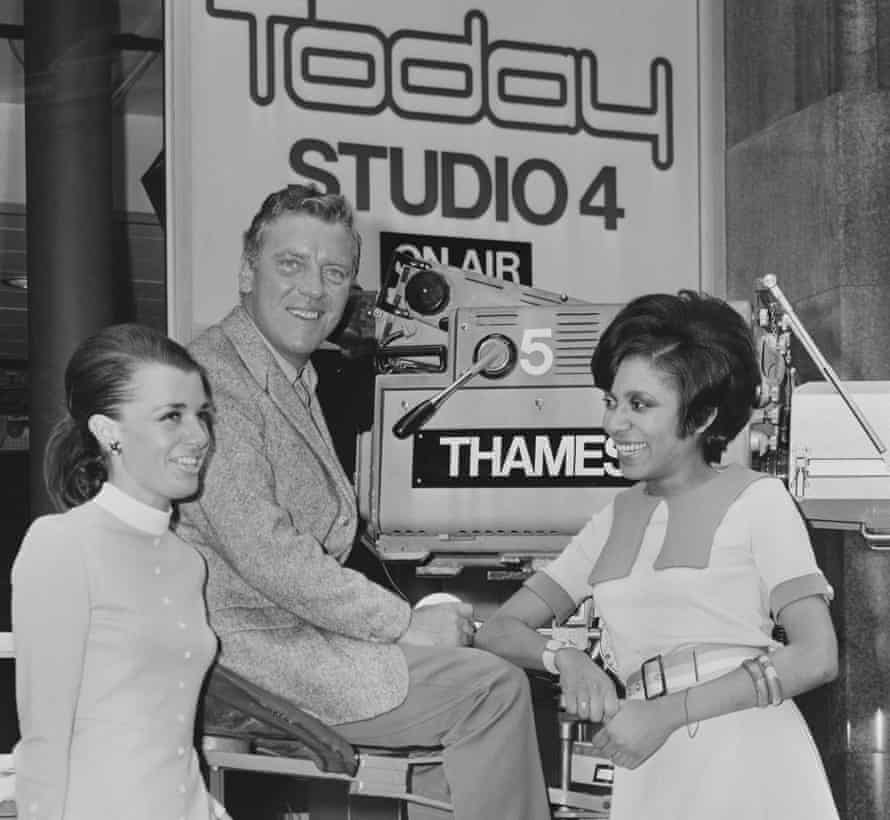
‘It was really wrong’ ... Blake-Hannah with her Today colleagues Eamonn Andrews and Jane Probyn in 1968. She was dismissed after nine months due to racist complaints from viewers. Photograph: Larry Ellis/Getty Images
It was never about the pool. The family had access to a pool and Blake-Hannah and her sister swam every morning. They were attended to by a cook, a gardener and a nursemaid and had places at the prestigious boarding school Hampton, alongside the daughters of the Caribbean elite. “There were 100 girls, only 10 of whom were Black, of whom my sister and I were the ‘blackest’,” she says.
The young Blake-Hannah’s expensive education ended prematurely, however, just after her O-levels. “By then, my father’s finances had collapsed. He took me out and put me in secretarial school. I wept bitter tears, but it really turned out to be most useful.” By the time Blake-Hannah accepted a job offer in Britain – a bit-part in the 1965 film A High Wind in Jamaica, starring Anthony Quinn – her work experience already included journalism, copywriting for an advertising agency, hosting a TV quizshow, appearing in a pantomime and a spot of modelling.
It was a good life, but she felt drawn to the “mother country”. “I’d been educated to be a Black Englishwoman. I could tell you the average rain rate for all of the Lake District and recite Wordsworth’s poem to daffodils. I spoke and wrote perfect English and I thought: ‘Well, apart from the disadvantage of brown skin, kinky hair and a broad nose, I would be quite OK, y’know?’”
Barbara Blake-Hannah: how Britain’s first black female TV reporter was forced off our screens

‘British people have never been taught the full story of their history’ ... Barbara Blake-Hannah. Photograph: Makonnen Hannah
In the 60s, long before Trevor McDonald and Moira Stuart became household names, a 26-year-old from Jamaica was a regular on the news. Then the racist letters and calls started

772
In 2008, Barbara Blake-Hannah sat down to write a letter of admonishment to the Guardian. “I must put history right,” she wrote, explaining that a poster issued by the paper was incorrect. It contained, she noted, the common misconception that Trevor McDonald was the first Black person to report the news on British TV after he joined ITN in 1973 and that Moira Stuart, on BBC News from 1981, was the first Black woman. In fact, said Blake-Hannah – an author, film-maker and former Jamaican senator – in 1968 she was one of three Thames Television on-camera reporters for the current affairs programme Today, presented by Eamonn Andrews. (The BBC had hired a Black trainee reporter, Eric Anthony Abrahams, a few years earlier.)
At the time her appointment made every daily newspaper, bar the Daily Express. Blake-Hannah claims the Express held out only because “they had a rule: no Black people on the front page”. “Shirley Bassey sang regularly and there were comedians, but we were allowed in an entertainment capacity, not as serious news people, delivering serious stories.”
She reported five days a week, on everything from the closing-down sale of the Beatles’ Baker Street shop (“They gave away everything in the store, so you can imagine the riot”) to gang crime in the East End of London. But, after nine months, the producers told her abruptly that they would not be renewing her contract. Why? Because of the numerous calls and letters from viewers objecting to a Black person on TV. “It broke my heart,’” she says.
Blake-Hannah is speaking to me from her home in Kingston, Jamaica, where she settled in 1972. She embraced Rastafari; the straightened, Vidal Sassoon-style bob of her 60s TV appearances has long been replaced by a leopard-print headwrap. Her only child, Makonnen Hannah, is nearby – he made headlines globally in 1998 when, as a 13-year-old, he was appointed the youngest-ever adviser to Jamaica’s Ministry of Commerce and Technology.
Blake-Hannah was raised in an affluent part of the Jamaican capital by her father, Evon Blake, a prominent magazine editor. His work meant mixing with the great and the good, but she says he is best remembered as the man who desegregated the swimming pool of the affluent Myrtle Bank hotel, a favourite haunt of one of his employees. “This accountant would go and swim there every midday, but my father, his boss, couldn’t. So one day my father put on his swimsuit and dived in. The horror! The manager came and said: ‘Mr Blake, you have to get out of the pool.’ He said: ‘No. Call the manager, call the prime minister, call God!’ And that was it: he liberated that pool, and he liberated Jamaican tourism.”

‘It was really wrong’ ... Blake-Hannah with her Today colleagues Eamonn Andrews and Jane Probyn in 1968. She was dismissed after nine months due to racist complaints from viewers. Photograph: Larry Ellis/Getty Images
It was never about the pool. The family had access to a pool and Blake-Hannah and her sister swam every morning. They were attended to by a cook, a gardener and a nursemaid and had places at the prestigious boarding school Hampton, alongside the daughters of the Caribbean elite. “There were 100 girls, only 10 of whom were Black, of whom my sister and I were the ‘blackest’,” she says.
The young Blake-Hannah’s expensive education ended prematurely, however, just after her O-levels. “By then, my father’s finances had collapsed. He took me out and put me in secretarial school. I wept bitter tears, but it really turned out to be most useful.” By the time Blake-Hannah accepted a job offer in Britain – a bit-part in the 1965 film A High Wind in Jamaica, starring Anthony Quinn – her work experience already included journalism, copywriting for an advertising agency, hosting a TV quizshow, appearing in a pantomime and a spot of modelling.
It was a good life, but she felt drawn to the “mother country”. “I’d been educated to be a Black Englishwoman. I could tell you the average rain rate for all of the Lake District and recite Wordsworth’s poem to daffodils. I spoke and wrote perfect English and I thought: ‘Well, apart from the disadvantage of brown skin, kinky hair and a broad nose, I would be quite OK, y’know?’”
